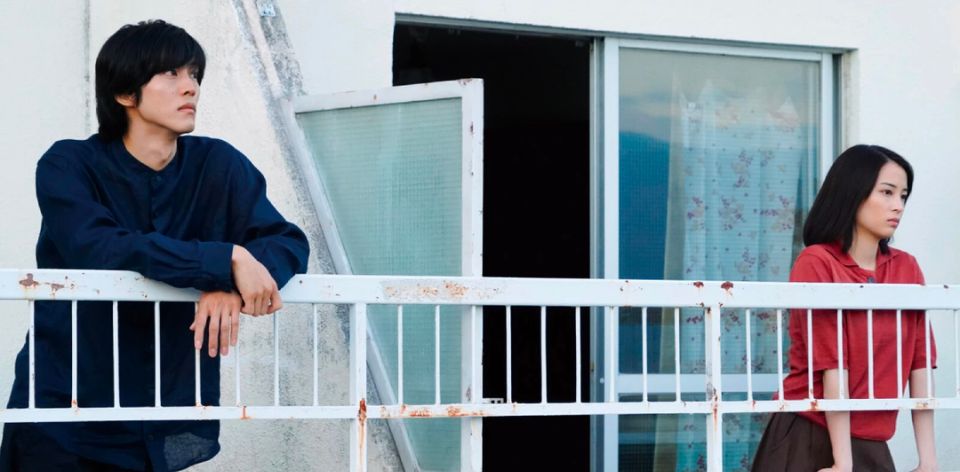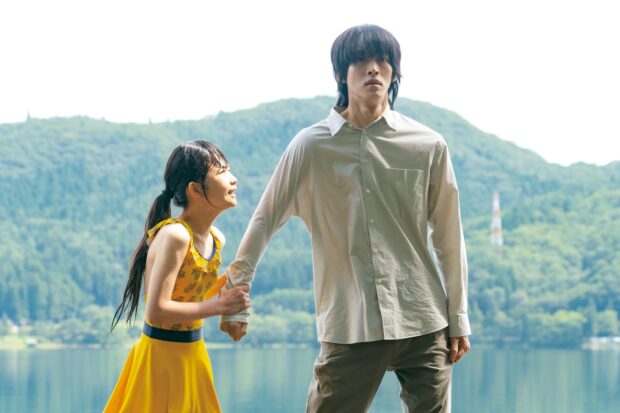Lee Sang-il’s films – which include Villain (2010), and the tense, multi-layered Rage (2016) – have often dealt with people on the fringes. They deal with moral ambiguities and big questions around what it means to be cast as a villain. In WANDERING (流浪の月), Lee pushes these boundaries further with subject matter that may divide audiences straight down the middle.
Based on a novel by Nagira Yuu, it follows the consequences of what happens when 19-year-old university student Fumi Saeki (Tori Matsuzaka) happens to meet nine-year-old Sarasa Kanai (Tamaki Shiratori) in a park. She tells him that she doesn’t want to go back to her aunt, and so Fumi invites her to stay with him. After spending a few months together, Fumi is arrested for kidnapping and is imprisoned.
It’s 15 years later when Sarasa (Suzu Hirose) encounters Fumi working in a coffee shop. They begin to form a relationship over the objections of Sarasa’s boyfriend Ryo (Ryusei Yokohama). Once the media get wind of the situation, Fumi and Sarasa are both hounded and ostracised.
In Villain, director Lee spent a lot of time pondering which of the characters truly lived up to the title. Lee’s screenplay for WANDERING never quite answers any of these questions here, and for many audience members it will be clear cut. Indeed, while it is always clear that Fumi’s relationship with the young Sarasa is platonic, it is hard not to feel that, at least at times, Lee has crafted this as a sympathetic portrayal of pedophilia.
Lee’s film is more nuanced than that, of course, although one might never feel fully comfortable watching this play out. Ostensibly, Lee wants us to view Fumi and Sarasa through the lens of a complicated relationship. Through flashbacks, in which the young Tamaki Shiratori becomes a clear standout in the cast, it emerges that Sarasa has been the subject of abuse at the hands of a teenage cousin. Later in life, the pattern repeats with Ryo, a unquestionably toxic partner who responds destructively when pushed.
On a technical level, the film is quite striking. Shot by Hong Kyung-pyo, recently of Parasite and Broker fame, it’s full of striking lush colours at times, and stark cityscapes at others. The streets of the city are cast in all their overlapping detail, with Hong and Lee bringing their own complexity into sharp focus.
While there have been many readings about the moral complexity of the film, in the end the material never quite sat right with me. Landing on the idea that Fumi just “couldn’t love an adult woman,” Lee ultimately wants us to see this as a tragic tale with a glimmer of hope. It leaves the duo adrift, wondering how society will judge them. “If someone finds us,” declares Sarasa, “we’ll just wander again.”
2022 | Japan | DIRECTOR: Lee Sang-il | WRITERS: Lee Sang-il (based on a book by Yuu Nagira) | CAST: Suzu Hirose, Tori Matsuzaka, Ryusei Yokohama, Tamaki Shiratori | DISTRIBUTOR: JAPAN CUTS | RUNNING TIME: 150 minutes | RELEASE DATE: 26 July-6 August 2023 (JAPAN CUTS)







